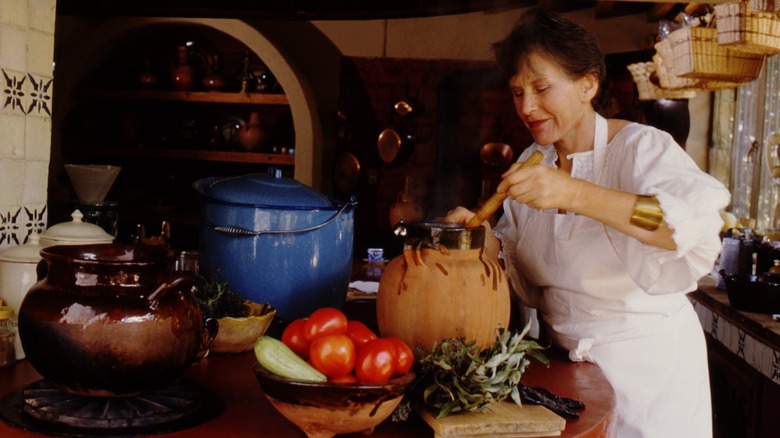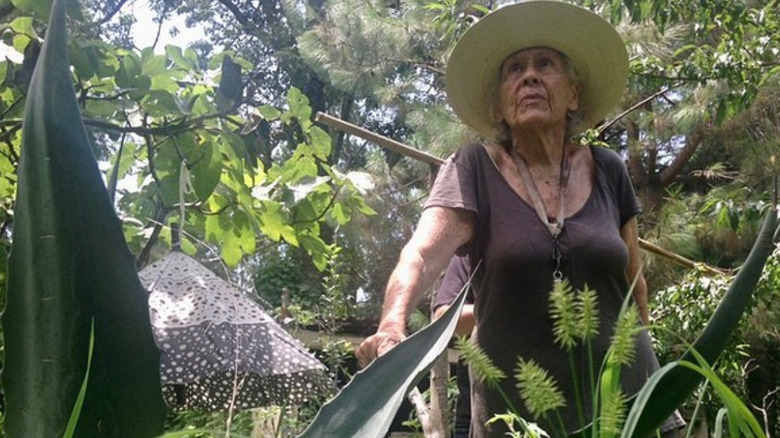How Diana Kennedy Honored Mexico's Cuisine And Biodiversity
Diana Kennedy, who passed away on July 24 at the age of 99, is remembered for her lifelong passion of recording and preserving the authentic cuisine of Mexico. Living alone in the country since the 1970s, Kennedy crisscrossed Mexico in a camper truck to speak with locals, collect recipes, and scout out elusive ingredients crucial to these dishes. The Los Angles Times shares that while some residents called her a "gringa loca" (crazy white lady,) the Mexican government presented Kennedy with their highest honor, the Order of the Aztec Eagle, for her dedication to traditional Mexican foods.
One remarkable aspect of Kennedy's cookbooks is she insisted on crediting by name the people who shared their recipes with her. In an interview discussing her award-winning cookbook "Oaxaca Al Gusto" (via YouTube) Kennedy said she had no interest in creating "nouvelle versions" of recipes, but wanted her readers to know where the foods really came from. In an interview with Eater, Elizabeth Carroll, director of the Kennedy documentary "Nothing Fancy," notes that the British-born cook could easily have used the recipes she gathered for her own gain, with restaurants or a line of food products. However, Carroll says that "making a bunch of money was not her goal."
Kennedy's mission of making authentic Mexican dishes without adaptation also meant she had no interest in altering recipes for fussy palates. For example, in the YouTube trailer for "Nothing Fancy" she says of people who hate cilantro, "Please don't invite them."
Diana Kennedy was an advocate for environmental stewardship
In a tweet honoring Diana Kennedy, Padma Lakshmi remembered her as being "feisty" and "opinionated." Kennedy's strong opinions were not only about Mexican recipes but about wastefulness and genetically modified crops. In an interview with the New York Times, Kennedy was adamantly anti-waste, which included excessive food packaging, plastics used in sous vide cooking, and not using every part of an animal in cooking. She liked to joke that she was as interested in what cooks put in their trash as what they put in their dishes. The Los Angeles Times shares that as early as the 1970s Kennedy made sustainable choices for her ranch outside of Mexico City, using solar and wind power and organic farming practices.
Kennedy was also opposed to genetic engineering in food crops and seeds, seeing in the pursuit for higher profits a loss of distinctive flavors and varietals integral to authentic Mexican food. A report from Harvard University says that a lack of diversity in crops makes them more susceptible to disease and climate change, but Kennedy was also seeing a cultural impact. In an interview (via YouTube) she said that in the areas where these seeds are used, "They are losing flavor and texture, and the joy of eating something that's a little more natural." Her passion on this front prompted Kennedy to turn her home in Michoacán, Mexico into the nonprofit Diana Kennedy Center to teach others about traditional Mexican cuisine and also about ecological stewardship.

